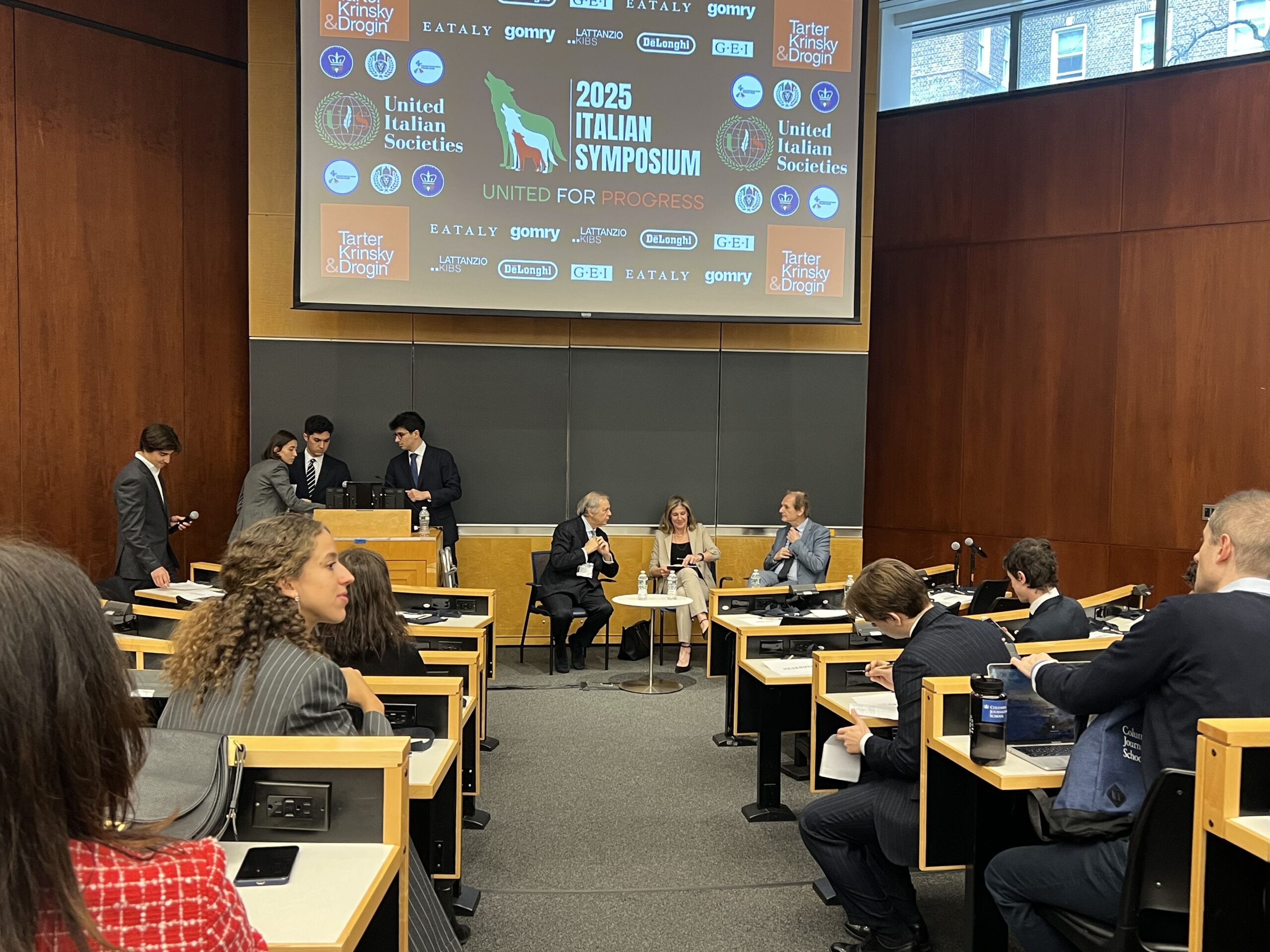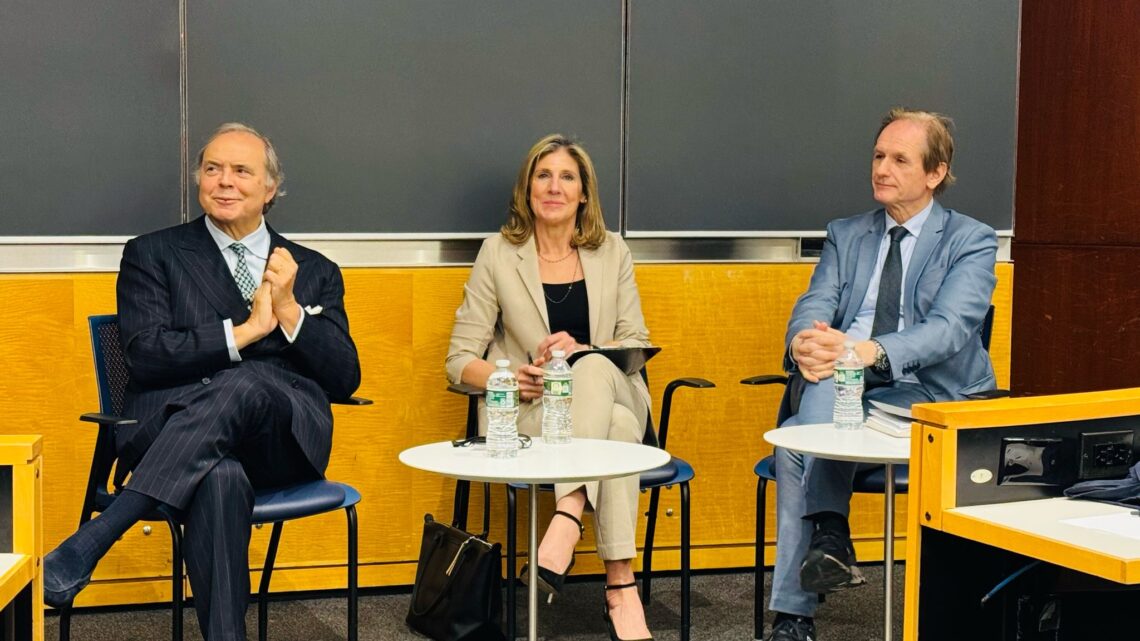On Friday, Columbia University hosted the third leg of the Italian Symposium put together by the student-led nonprofit United Italian Societies, an organization which, as the name implies, represents a coalition of some 11,000 Italian students across dozens of schools in Western Europe and the United States. Following two other Italian Symposium events in London and Madrid last month, the three-day Manhattan edition features moderated discussions and Q&As with leading Italian figures from the media and business worlds.
The event kicked off with a panel event titled “Setting the Stage for Transatlantic Relations,” with the discussion helmed by Italian news media heavyweights Mario Calvo-Platero, columnist for the storied daily La Repubblica and President of Gruppo Esponenti Italiani; Claudio Pagliara, US Bureau Chief for RAI, and author of “The Perfect Storm: USA and China on the Brink of World War III”; and Francesca Forcella, US Correspondent for Mediaset.
The question of what the appropriate stance should be from the United States in regard to trade policy drew diverging responses from the panelists. Calvo-Platero critiqued the president’s rhetoric, singling out Trump’s recent comments about other countries eager to negotiate tariffs. “I don’t think it’s the right way to say ‘people are coming to kiss my ass,’” he said, paraphrasing a recent remark from Trump. “We need to lower the tone.”
He also expressed concern at the administration’s chaotic management of American trade policy, which caused a tumultuous week on the stock market and a sharp drop in the dollar’s value. The former researcher on international banking said that “it’s not clear what kind of model or method the administration is using.” He noted complex situations brought about by trade that could not be addressed with Trump’s blanket measures, like German automakers exporting parts that are manufactured in Germany to the United States for assembly, and then ship the finished car back to Europe. “To change this intricate production system that offers economies of scale takes time.”
Beyond the problems for global trade caused by Trump’s economic policy, Calvo-Platero said its effect on the bond market was “more worrying.” He pointed to the many institutional investors, for example pension funds, that are invested in government securities like bonds and T-bills, and cautioned that continued turmoil “will end up having an impact directly on an internal financial system that may find itself in difficulties.”

While Calvo-Platero urged restraint and cautioned against causing harm to the American economy, Claudio Pagliara was largely in favor of the brash approach taken by President Trump, particularly as it relates to China. He argued that the country was not as economically sound as it appeared to be and has been in a recession “for at least three years,” and that the current trade dispute with the United States “will force China to come to some sort of agreement.”
The veteran reporter also noted China’s skirting of World Trade Organization regulations, closing its market to foreign investors while exploiting foreign market access afforded by the framework, and argued that “it’s time to unplug the world economy from China.” When Francesca Forcella pointed out that the United States would need a decade to build up its own industrial capacity to the point of cutting China out, Pagliara staked out an even more hawkish position. “I think maybe recession is the best thing that can happen,” he said. “Because if there’s no recession, with Xi Jinping, there will be real war.”
The panel discussion shifted at the end of the session, fielding a question from a moderator about how to cultivate media literacy. Forcella urged consumers of news to always get to the bottom of who the source for their information is, beyond the outlet that places that information in front of them, in order to assess its credibility. Forcella also said that the problem was compounded by the White House’s hostility to reputable media outlets. “The biggest risk right now is coming from wanting to restrict what the media says,” she said, citing the AP being frozen out of Trump administration briefings. “Democracy is fragile, and [the press] is one of the more important sentinels to guard that.”
The Italian Symposium continues on Saturday at Columbia Business School with events on the theme of “Transatlantic Synergies: Navigating Innovation, Investment, and Ethics in the Digital Age.”












